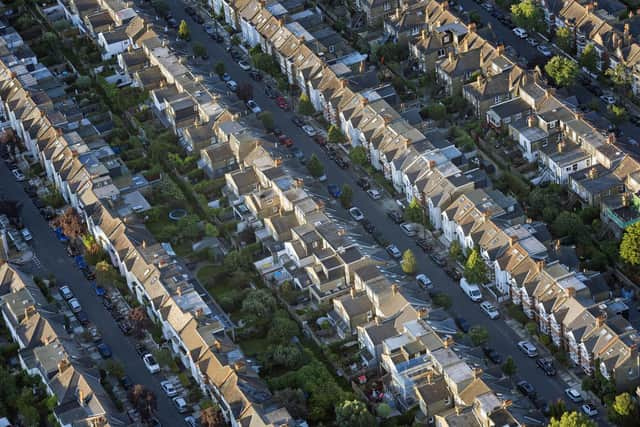Rents frozen for one million households as MSPs pass emergency cost-of-living bill
This article contains affiliate links. We may earn a small commission on items purchased through this article, but that does not affect our editorial judgement.
The Bill will see rent increases capped at 0 per cent until the end of March next year, with the possibility of the Scottish Government extending the freeze for a further 12 months, brought in as a response to the cost-of-living crisis.
It will retrospectively date back to September 6, when the intention to pass the Bill was announced.
Advertisement
Hide AdAdvertisement
Hide AdRents can be increased by up to 3 per cent if landlords can demonstrate increased costs such as higher mortgage interest payments as part of several safeguards in the Bill intended to protect the interests of landlords alongside tenants.
Landlords will also only be able to evict tenants for a handful of reasons, including significant rent arrears and whether they need to sell or move into the property they are renting due to financial difficulty.
The Bill received cross-party backing with 89 MSPs voting in favour, with 27 MSPs, mostly Scottish Conservative, voting against.
It has been rushed through Parliament in just three days due to the emergency nature of the legislation. However, critics have labelled the freeze “irresponsible”.
Cabinet secretary for social justice and housing, Shona Robison, said the Bill protected tenants who were “so much more exposed” to the cost-of-living crisis, adding the Government had “listened carefully” to landlord concerns and had struck “the right balance”.


She said it would “keep people in their homes at a really really difficult time”.
Scottish Conservative spokesperson for housing, Miles Briggs, criticised the Bill, stating the legislation would result in the “loss of a significant number of private rented properties” and would make it harder for homeless families to find tenancies.
During consideration of amendments, a Scottish Labour attempt to increase the threshold of rent arrears for social rented sector tenants to meet before eviction procedures can begin from £2,250 to £8,500 was defeated 93 votes to 20.
Advertisement
Hide AdAdvertisement
Hide AdThe Scottish Government moved against the motion, claiming it would be the equivalent to two years of rent arrears and too high.
Further amendments from Scottish Labour set out the requirement or landlords to provide letters of advice, either from financial advisors or accountants, demonstrating their financial hardship prior to being able to move to evict a tenant during the duration of the freeze.
These were backed by the Scottish Government and were supported unanimously by MSPs.
On Wednesday, MSPs voted against removing the social rented sector from the Bill and setting up a scheme where the Government pays landlords if their mortgage costs exceed rent.
Around 2.2 million people living in Glasgow, Edinburgh and the Lothians, Fife and the Forth Valley have seen rents rise well above the rate of inflation since 2010.
Those renting in the private sector in Edinburgh and Glasgow have seen average rents increase by more than double inflation in the same time period, Government statistics show.
On average, a two-bed flat in the Scottish capital has risen from £665 per month in 2010 to almost £950 in 2021.
Glasgow private rental sector tenants have seen a rise from £564 to £797, with the Scottish average rising from £554 to £693 per month.
Advertisement
Hide AdAdvertisement
Hide AdThose figures are likely to show further rent hikes for 2022.
The Scottish Government has also committed to bringing forward a Housing Bill during this session of Parliament that could introduce rent controls.
All episodes of the brand new limited series podcast, How to be an independent country: Scotland’s Choices, are out now.
It is available wherever you get your podcasts, including Apple Podcasts and Spotify.
Comments
Want to join the conversation? Please or to comment on this article.
